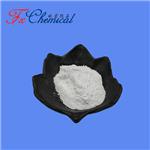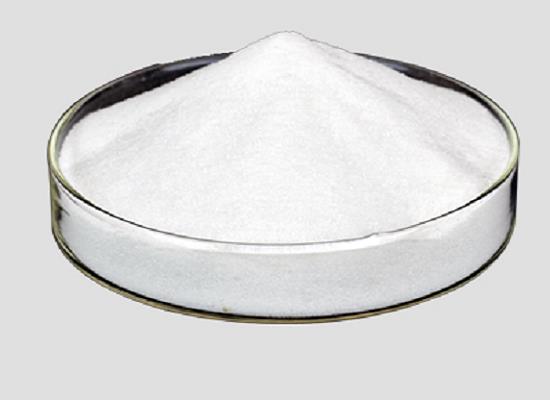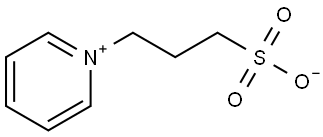3-(1-Pyridinio)-1-propanesulfonate: properties, applications and safety
Nov 16,2023
General Description
3-(1-Pyridinio)-1-propanesulfonate is a versatile chemical compound with distinctive fluorescent properties, high water solubility, and stability under physiological conditions. It has a pyridinium cation functional group attached to a propanesulfonate anion. 3-(1-Pyridinio)-1-propanesulfonate has various applications, including its use as a dual-functional material for improving the performance and stability of perovskite photodetector devices. It serves as both an additive material in the perovskite layer and an interlayer between the SnO2 and perovskite interface, effectively passivating both positive and negative charge defects. This leads to improved surface morphology and prolonged charge carrier lifetime, resulting in a photodetector device with exceptional performance under ambient conditions. However, proper precautions must be taken when handling it as it can cause skin irritation, eye irritation, and respiratory discomfort. In conclusion, 3-(1-Pyridinio)-1-propanesulfonate has promising potential in various applications, but safety measures must be followed to ensure safe handling.

Figure 1. 3-(1-Pyridinio)-1-propanesulfonate
Properties
3-(1-Pyridinio)-1-propanesulfonate is a chemical compound with diverse properties and applications. This organic sulfonate derivative possesses a pyridinium cation functional group attached to a propanesulfonate anion. One of the notable properties of TPPS is its distinctive fluorescent characteristics. It exhibits strong fluorescence emission in the red region of the spectrum, making it suitable for various applications in fluorescence microscopy, bioimaging, and photodynamic therapy. Moreover, TPPS demonstrates excellent water solubility, which enhances its usability in aqueous environments. This property enables its direct incorporation into aqueous solutions without the need for extensive solubilization procedures. Additionally, TPPS exhibits stability under physiological conditions, ensuring its reliability for biological experiments and medical applications. Its chemical structure provides resistance to degradation and allows for prolonged use in biological systems, facilitating long-term studies and investigations. In summary, 3-(1-Pyridinio)-1-propanesulfonate possesses distinct fluorescent properties, high water solubility, and stability under physiological conditions. 1
Applications
3-(1-pyridinio)-1-propanesulfonate has been proposed as a dual-functional material for improving the performance and stability of perovskite photodetector devices. 3-(1-pyridinio)-1-propanesulfonate serves as both an additive material in the perovskite layer and an interlayer between the SnO2 and perovskite interface. The incorporation of 3-(1-pyridinio)-1-propanesulfonate effectively passivates both positive and negative charge defects, resulting in improved surface morphology and prolonged charge carrier lifetime. Additionally, deposition of 3-(1-pyridinio)-1-propanesulfonate as an interlayer enhances the SnO2 surface and improves charge extraction from the active layer, leading to reduced recombination and improved charge extraction. Ultimately, this results in a photodetector device with exceptional performance under ambient conditions, exhibiting a low dark current, high responsivity, detectivity, and an excellent on/off ratio. Furthermore, the 3-(1-pyridinio)-1-propanesulfonate-incorporated device exhibits excellent stability in diverse environmental conditions. The results of this study highlight the tremendous potential of dual-functional materials in passivating defects for future optoelectronic devices. This research also emphasizes the critical role of defect passivation in perovskite optoelectronics and sets the stage for further advancements in the field. This study demonstrates that the incorporation of 3-(1-pyridinio)-1-propanesulfonate as both an additive and an interlayer is a promising approach for enhancing the performance and stability of perovskite photodetectors, which may have broad implications for other optoelectronic devices. 2
Safety
Firstly, 3-(1-Pyridinio)-1-propanesulfonate has been identified as a potential irritant to the skin. Direct contact with PPS may cause redness, itching, and inflammation. Therefore, it is crucial to use protective gloves and clothing when handling PPS to prevent skin irritation. Secondly, 3-(1-Pyridinio)-1-propanesulfonate is known to cause serious eye irritation. In case of accidental contact with the eyes, it is vital to flush them immediately with plenty of water for at least 15 minutes and seek medical attention promptly. Lastly, 3-(1-Pyridinio)-1-propanesulfonate may cause respiratory irritation if inhaled in high concentrations or for extended periods. Adequate ventilation is necessary in areas where PPS is stored or used to minimize the risk of respiratory discomfort. In summary, proper precautions must be taken when dealing with 3-(1-Pyridinio)-1-propanesulfonate to ensure safety. 3
Reference
1. Koclega KD, Chruszcz M, Gawlicka-Chruszcz A, Cymborowski M, Minor W. 3-(1-Pyridinio)propanesulfonate and 3-(benzyldimethylammonio)propanesulfonate monohydrate. Acta Crystallogr C. 2007 Feb;63(Pt 2):o114-116.
2. Khan AA, Kumar N, Jung U, Heo W, Tan Z, Park J. Performance and stability enhancement of perovskite photodetectors by additive and interface engineering using a dual-functional 3-(1-pyridinio)-1-propanesulfonate zwitterion. Nanoscale Horiz. 2023 Oct 23;8(11):1577-1587.
3. PubChem. COMPOUNDSUMMARY: 3-(Pyridin-1-ium-1-yl)propane-1-sulfonate. National Library of Medicine, 2005, PubChem CID: 84929.
- Related articles
- Related Qustion
- What is 3-(1-Pyridinio)-1-propanesulfonate? Jan 16, 2020
3-(1-Pyridinio)-1-propanesulfonate is a member of the class of nondetergent sulfobetaines. Unlike CHAPS and other zwittergents, 3-(1-Pyridinio)-1-propanesulfonate are nondenaturing even at 1 M concentrations.
Sildenafil is a safe and effective medication for erectile dysfunction and pulmonary arterial hypertension, improving blood flow and promoting smooth muscle relaxation.....
Nov 16,2023APIPhenylurea has versatile applications but requires proper handling and disposal due to its toxicity.....
Nov 16,2023API3-(1-Pyridinio)-1-propanesulfonate
15471-17-7You may like
3-(1-Pyridinio)-1-propanesulfonate manufacturers
- Pyridinium propyl sulphobetaine
-

- $0.00 / 120kg
- 2025-12-16
- CAS:15471-17-7
- Min. Order: 1kg
- Purity: 99%min HPLC
- Supply Ability: 10000kg
- 3-(1-Pyridinio)-1-propanesulfonate
-

- $0.00 / 1kg
- 2025-12-05
- CAS:15471-17-7
- Min. Order: 1kg
- Purity: 99%min
- Supply Ability: 20tons
- 3-(1-Pyridinio)-1-propanesulfonate
-

- $1.10 / 1g
- 2025-11-18
- CAS:15471-17-7
- Min. Order: 1g
- Purity: 99.00%
- Supply Ability: 100 Tons Min






